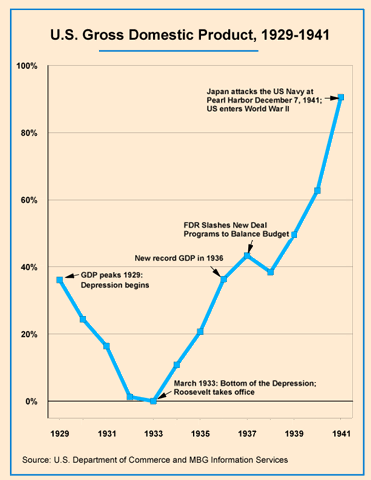Teeninvestor
Warlord
From my POV, it doesn't seem like economic stimulus(Or pork) packages are any effective.
In a minor recession, economic stimulus wouldn't been needed. I mean, if the gov spent 1.2 trillion we wouldn't have the 2001 recession, but that would do more harm than good.
In a major receession/depression, it seems that government spending has little effect other than create inflation and increase the debt.
For example, I show to you Japan in the 1990's.
The Japanese government spent a sum equivalent to the country's GDP, yet Japan still went through the "Lost decade" of economic stagnation.
So for all those who like keynesian economics, I have a question: How does government spending stimulate the economy more than it hurts?
In a minor recession, economic stimulus wouldn't been needed. I mean, if the gov spent 1.2 trillion we wouldn't have the 2001 recession, but that would do more harm than good.
In a major receession/depression, it seems that government spending has little effect other than create inflation and increase the debt.
For example, I show to you Japan in the 1990's.
The Japanese government spent a sum equivalent to the country's GDP, yet Japan still went through the "Lost decade" of economic stagnation.
So for all those who like keynesian economics, I have a question: How does government spending stimulate the economy more than it hurts?




